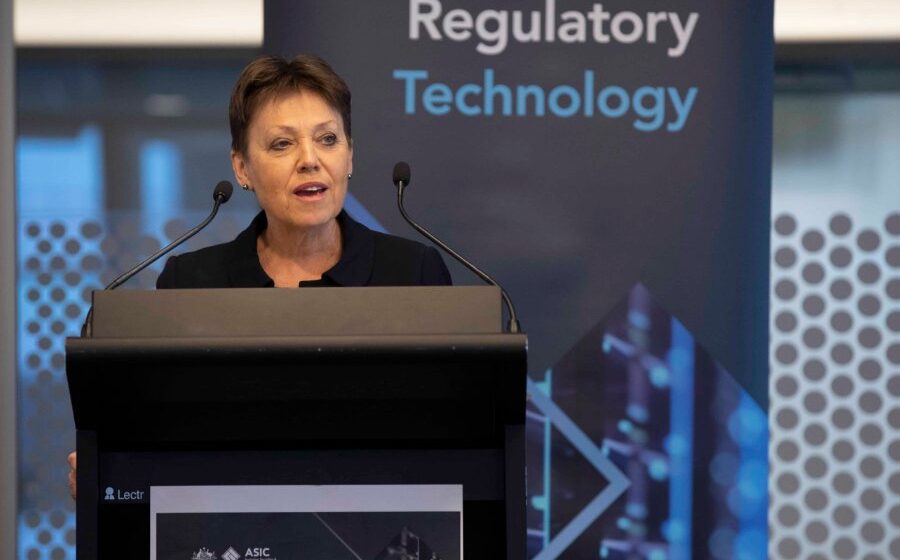One of the top decision-makers at corporate regulator ASIC has warned Australian cryptocurrency companies that they will be scrutinised and held to the same standards as traditional finance companies as regulation of digital assets strengthens.
At Blockchain Australia’s week-long crypto conference on Thursday, ASIC commissioner Cathie Armour told attendees that the growing maturity of the blockchain industry meant that up-and-coming businesses offering finance-related crypto products would need to change how they interacted with the regulator.
“Many years ago, the first port of call for a firm developing a crypto asset-based financial product with ASIC was through our innovation hub,” she said. ” Now, with the growing maturity of many parts of the industry, we anticipate firms with more established business models…will engage with us in much the same way as financial services firms.”
“This means more and more we’re going to be pushing you to have really developed ideas and firm legal foundations for your proposals.”
The cryptocurrency sector has long existed under a very light regulatory touch, with major digital exchanges currently only required to comply with basic anti-money laundering provisions and basic company law. Crypto businesses that operate in the finance industry are similarly unbound.
However, this is swiftly changing, with the government in the process of establishing new regulations which will affect digital exchanges and other crypto businesses by introducing market licenses similar to those imposed on the Australian Stock Exchange, and new determinations which crypto assets are or aren’t considered financial products.
Ms Armour pointed to statistics released by the government this week showing that more than 800,000 Australians transacted in digital assets in the past 12 months, a 61 per cent increase on the prior year, saying it demonstrated that crypto’s prevalence was now becoming comparable to that of traditional financial services.
“Inevitably this means that our supervision of [crypto companies] is intertwined with the supervision that we undertake for the activities of other providers of investment products,” she said.
“We’re doing this because we’re keen to maintain our robust regulatory framework. We’re really looking for industry to work closely with us and to do a lot of their own homework to navigate the details.”
ANZ’s stablecoins
The commissioner’s comments come as increasing numbers of traditional finance companies begin to make notable forays into the crypto and blockchain space, with ANZ announcing on Thursday it had completed the first-ever Australian-bank-issued Australian dollar stablecoin payment.
Stablecoins are a type of digital asset which run on blockchain technology and are pegged to an existing currency such as the Australian dollar, so their prices remain relatively stable. ANZ minted $30 million of its Ethereum-based ‘A$DC’ stablecoin on behalf of Melbourne’s billionaire Smorgon family which transferred it to crypto fund manager Zerocap within minutes.
“An ANZ-issued Australian dollar stablecoin is a first and important step in enabling our customers to find a safe and secure gateway to the digital economy,” ANZ banking services lead executive Nigel Dobson said.
“Stablecoins are a new way for customers to transact, and in this case was an efficient and direct way for Victor Smorgon Group to access Zerocap’s digital asset exchange and move funds across a decentralised network.”



